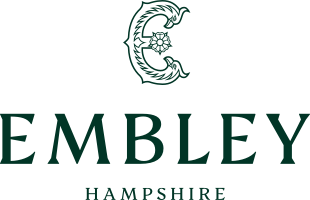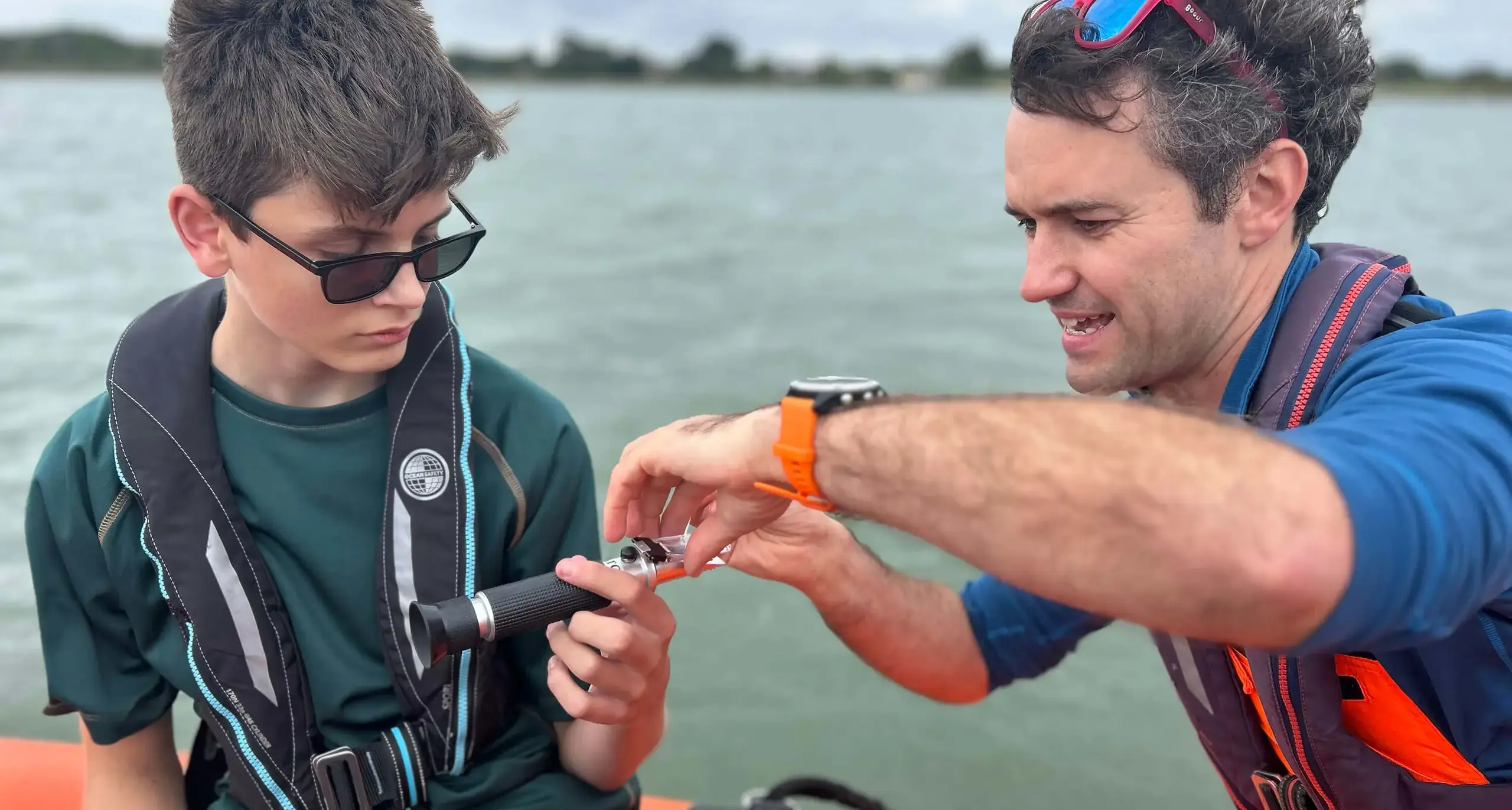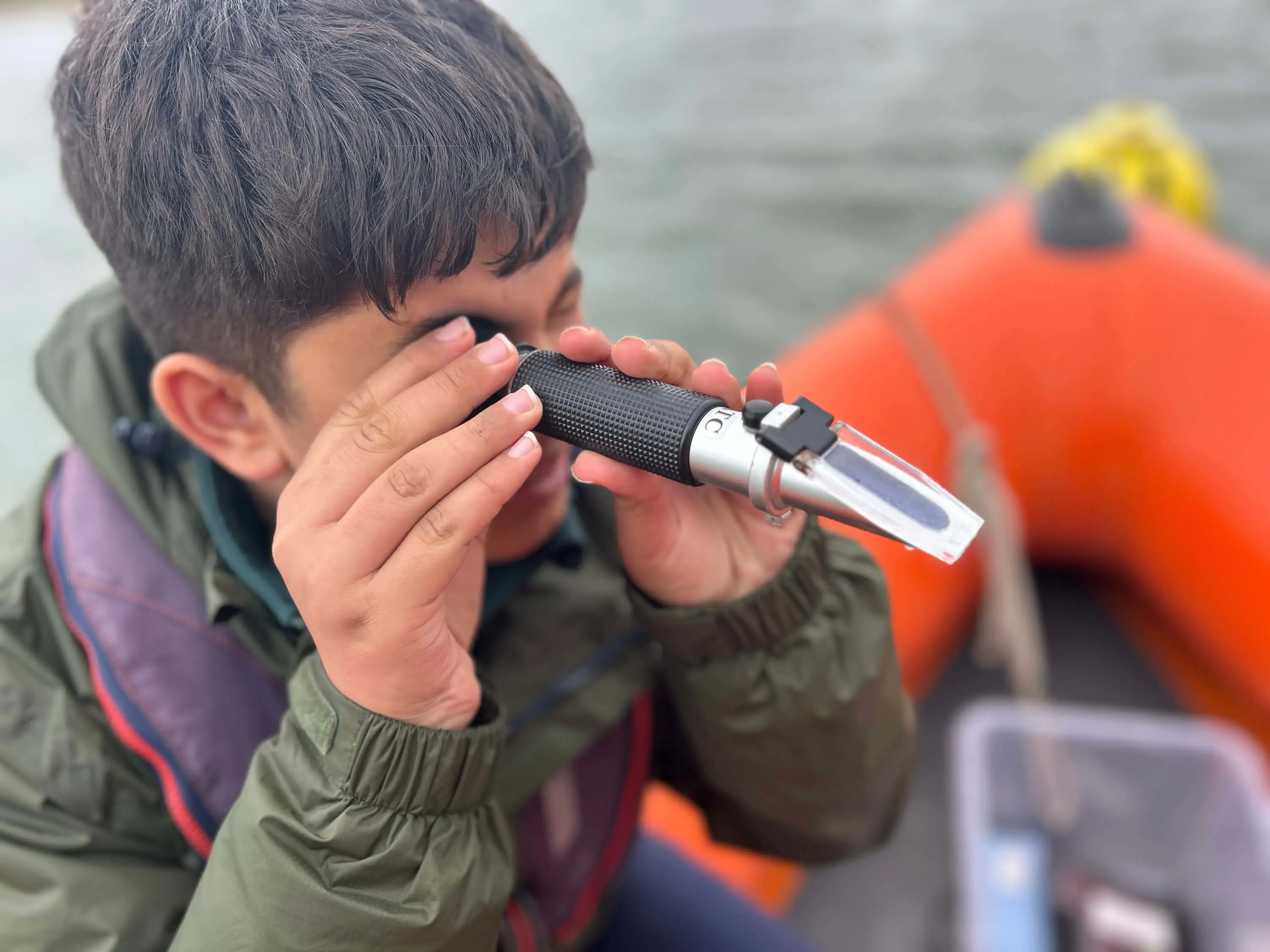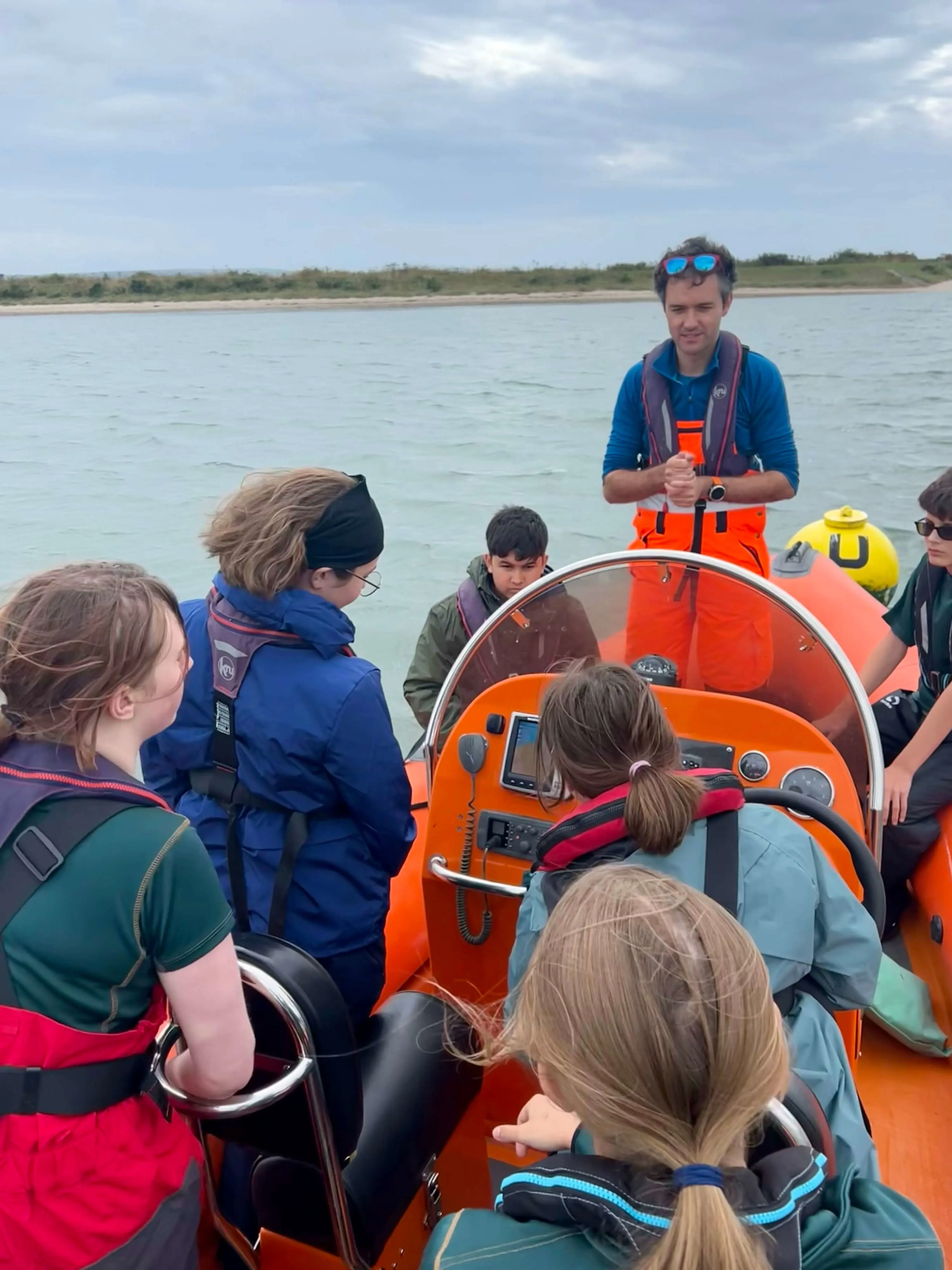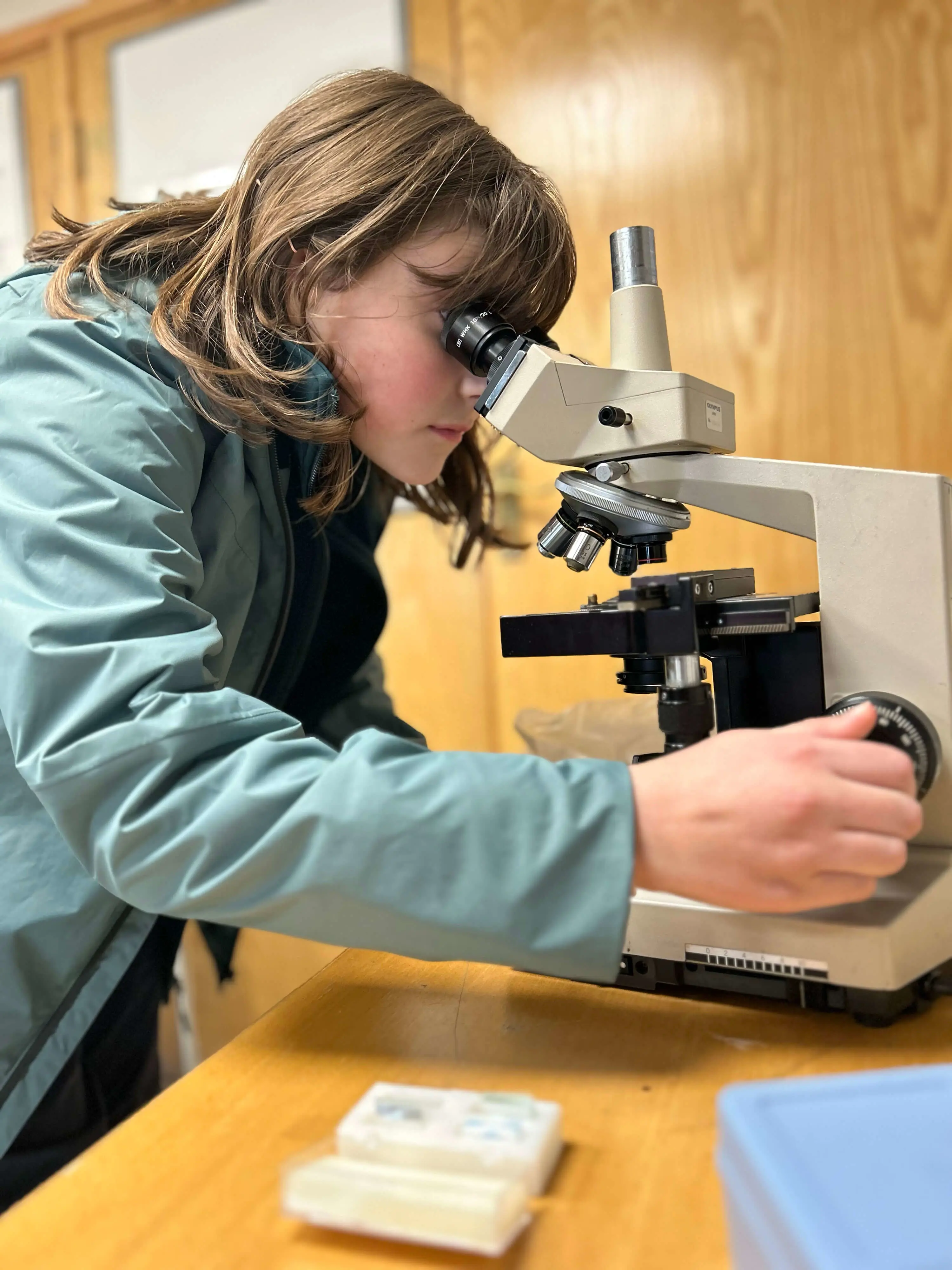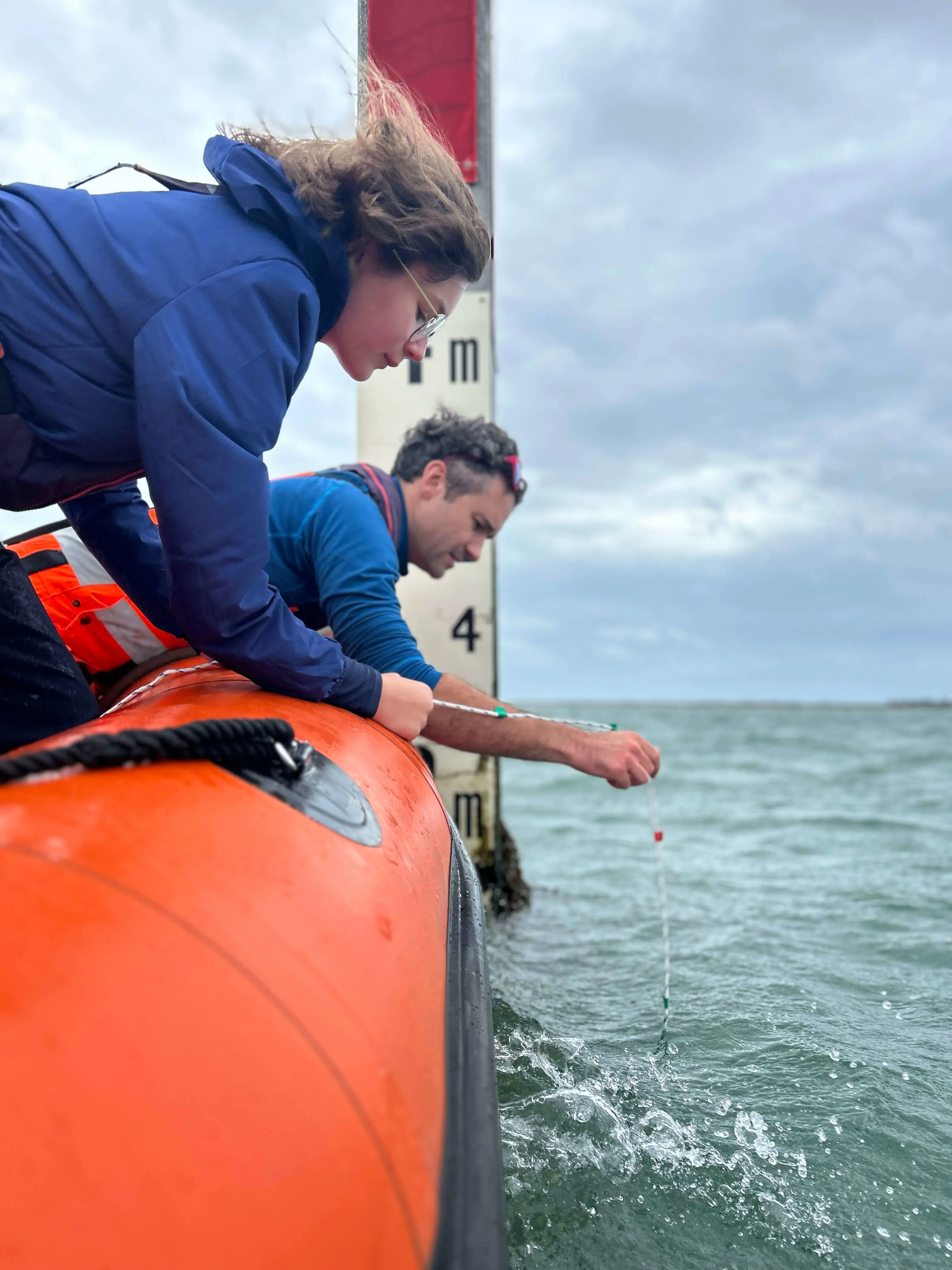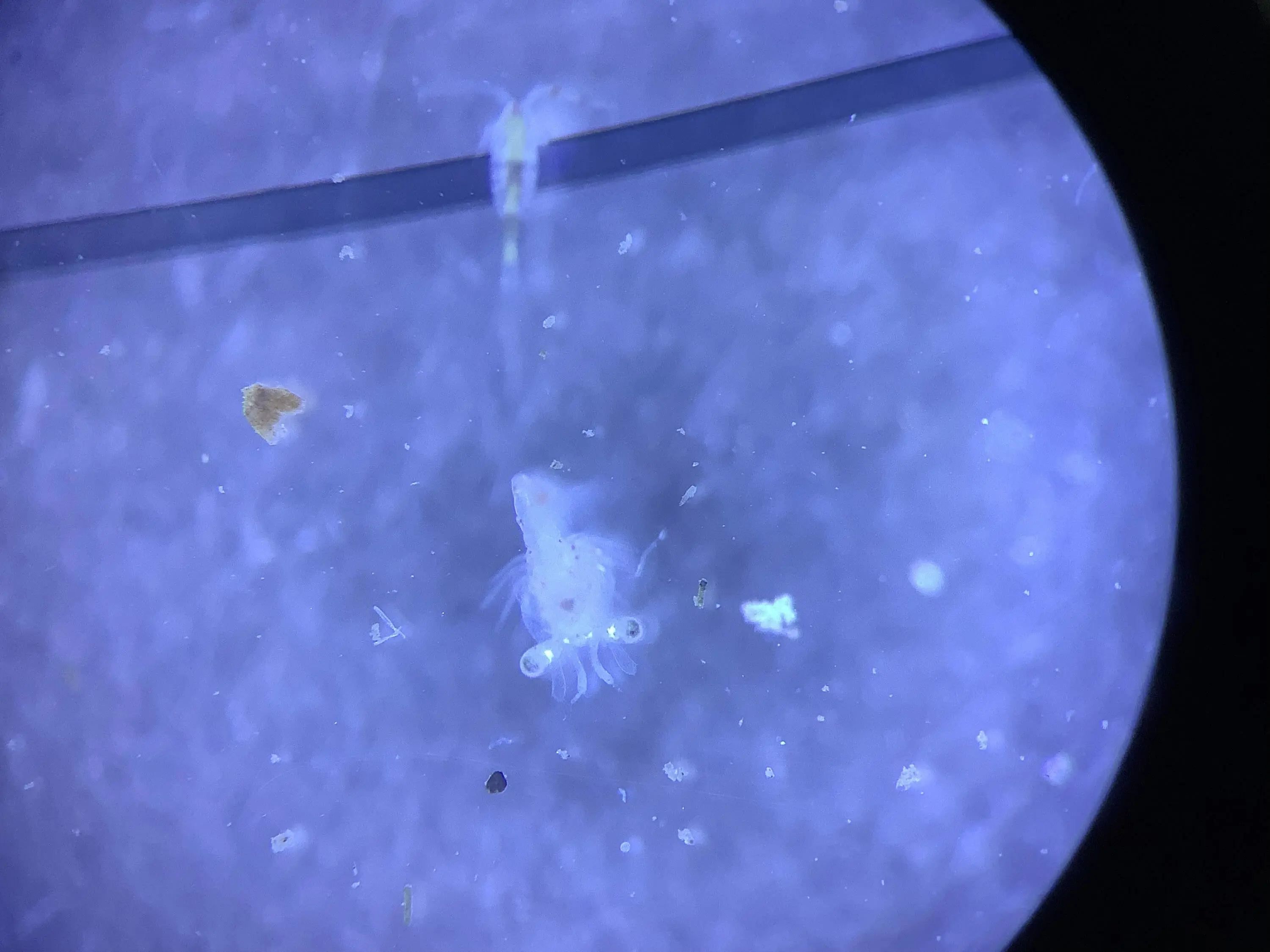A group of Year 9 sailors embarked on an exciting journey to support Embley’s new marine biology research programme by collecting environmental data. Led by Dr. Reed and Head of Sailing, Mrs Bubb, the students participated in their first research expedition into the Solent.
Students learned the importance of collecting environmental data to monitor changes in the waters they regularly sail. Although it was too windy for sailing, conditions were ideal for the RIB and some hands-on Science.
Dr. Reed introduced the group to a Secchi Disk, a simple yet effective tool built used to measure water clarity which was built by Mr Morris, Embley's 3D Design Technician. The students measured the salinity and temperature of the surface water. Further into the Solent, they deployed a plankton net to capture microscopic animals and debris from the water’s surface. A quick examination under the microscope revealed a variety of marine life, including copepods, crab larvae, baby jellyfish, and even microscopic swimming snails. Unfortunately, the students also observed floating microplastic threads - an increasing concern for marine life, as these can entangle plankton.
Two locations near Lymington have been designated for weekly data collection, referred to as Station E1 and Station E2. Collection data each week as part of the school's sailing programme offers students the chance to gain real scientific experience, while contributing to a broader understanding of the changing marine environment.
The collected samples will now be handed over to our Marine Biology Club where they will analyse the types of plants, animals, and plastics found in the plankton samples. The data will be shared with researchers at the University of Southampton, with the hope of identifying patterns of environmental change in this area of the Solent over the coming year.
